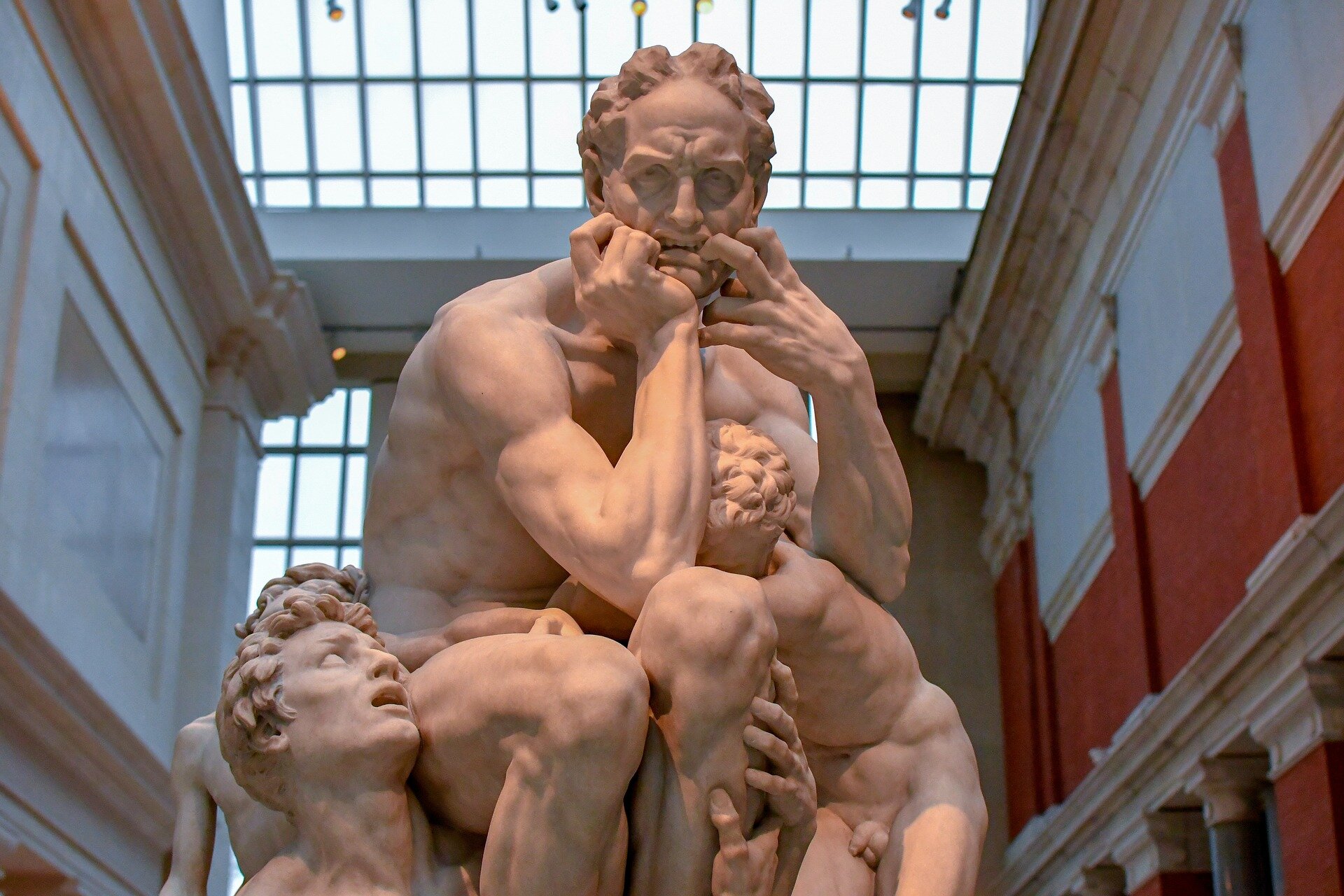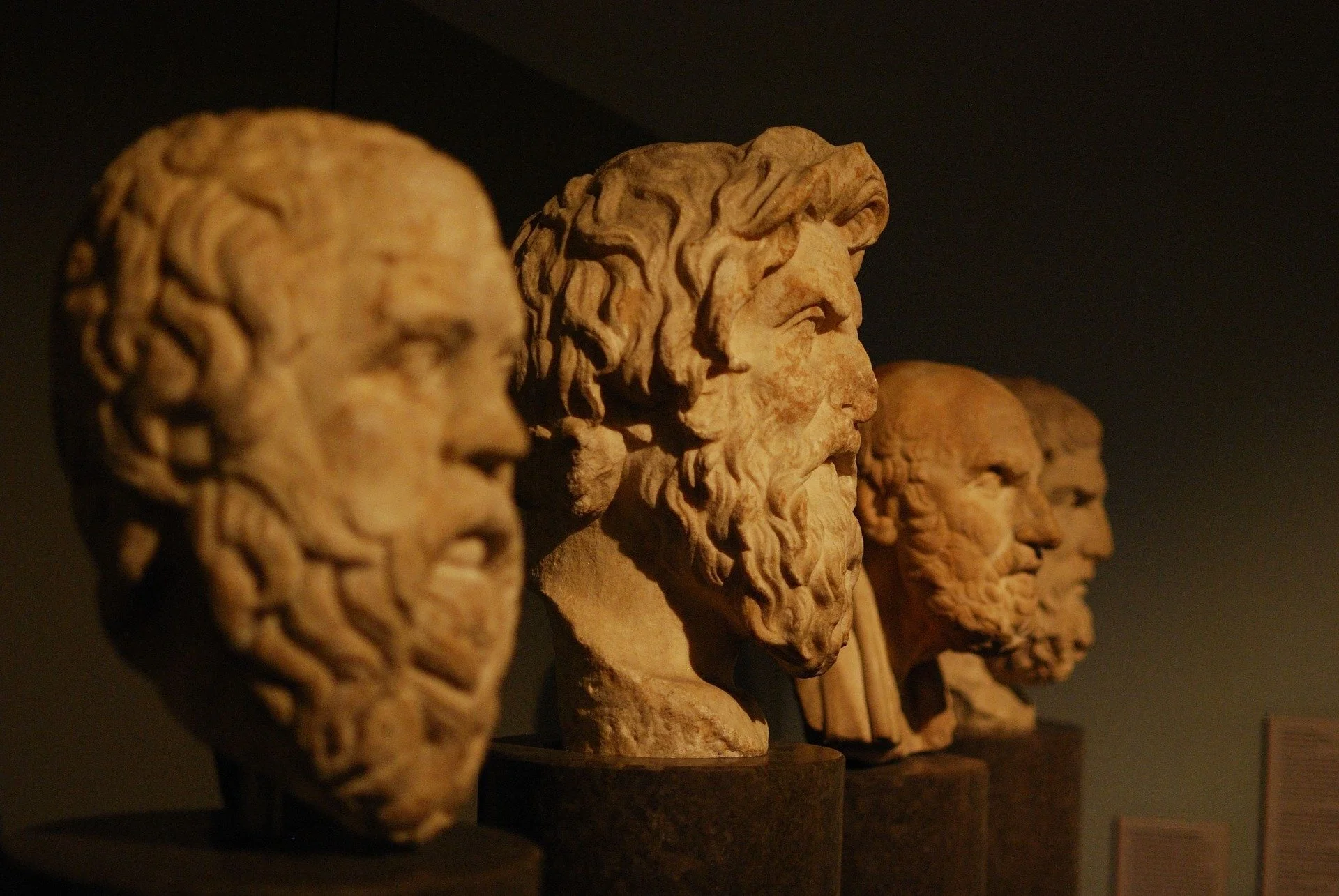Are Philosophers Cowards? Lucian on the Cowardice of Philosophy
I’ve recently begun reading various short works by Lucian of Samosata—known by many simply as “Lucian.” Lucian’s works are as challenging to contemporary readers as they were in his own time because of his heavy use irony and satire. In fact, Lucian is generally considered more a satirist than a philosopher, although he delves into many and varied philosophical topics in his numerous written works. Lucian’s use of irony and satire is so pervasive in his written works that it can be difficult to tell which sentiments and opinions expressed therein are the sincere opinions of Lucian and which are ironic or satirical—an even greater interpretive challenge for us fairly literal-minded contemporary thinkers!
Lucian offers harsh criticisms of many ancient philosophers in particular, and of philosophy itself in general. Again, however, it’s difficult to tell whether these are genuine criticisms or criticisms in jest actually in support of genuine philosophy, perhaps in some literary and dialogical attempt to separate true philosophers from philosophical imposters. As always with Lucian, it is difficult to tell who the real Lucian is and what his actual views were on the subject.
One of Lucian’s harshest criticisms of philosophers is that they often preach virtue but themselves are not virtuous, which is to say that many philosophers are hypocrites. Philosophers speak of courage but themselves are not courageous. They speak of the expunging of vices but are as avaricious as pleasure-seeking as those who pursue such aims in the open for all to see. They feign humility but care more for their own reputations than they admit, perhaps even to themselves, and so on. Lucian’s sarcasm and cynicism about the value of philosophy and the so-called virtuousness of philosophers is oddly familiar to readers of the 21st century in the social media age in which skepticism, cynicism, false appearances, and disingenuousness run rampant in popular and social media.
Consider the following passages by Lucian in which he accuses philosophers, generally and universally, of cowardice:
To put it simply, when you consider the recorded behaviour of rhetoricians or philosophers, you’ll find that some of them wouldn’t even venture to step outside the walls, while any one of them that ever did, I maintain, was forced to join the line and then turned tail and left it. (Lucian, “About the Parasite: Proof That Parasitic Is an Art,” Chattering Courtesans and Other Sardonic Sketches, Penguin Classics)
. . . these people who discuss bravery every day and wear down the word ‘virtue’ by constant use will be seen to be much more cowardly and unmanly than the rhetoricians. Look at it this way. First of all, no one could name a philosopher who’s died in battle. Either they never served in the army at all, or if they did they all ran away. On the one side, then, Antisthenes, Diogenes, Crates, Zeno, Plato, Aeschines and Aristotle and that whole crew never even saw a battle-line. The only one who had the courage to go to fight at the battle of Delium was their sage, Socrates. He ran off out of the battle from Mount Parnes and took refuge in the wrestling school of Taureas. He thought it much more pleasant to sit billing and cooing with the young lads and to pose conundrums to people he met than to fight a Spartan. (Lucian, “About the Parasite: Proof That Parasitic Is an Art,” Chattering Courtesans and Other Sardonic Sketches, Penguin Classics)
Tell me, has there ever been a philosopher or an orator who’s stripped in a wrestling ground who could be compared physically to a parasite? Isn’t it rather the case that any one of them seen in a gymnasium has brought a blush of shame to the place? (Lucian, “About the Parasite: Proof That Parasitic Is an Art,” Chattering Courtesans and Other Sardonic Sketches, Penguin Classics)
Lucian calls out several philosophers by name as never having served in the military at all (Antisthenes, Diogenes, Crates, Zeno, Plato, Aeschines, and Aristotle), and can identify only one philosopher, at least at that point in the history of philosophy as Lucian understood it, with any military service at all: Socrates, who, although having fought at the battle of Delium, Lucian claims ultimately ran out of the battle. Lucian’s point here, satirical or authentic, is clear: What qualifies philosophers to be teachers of personal virtues such as courage when their own lives display none of the courage they proclaim as virtuous?
Although Socrates was well-known for having been a hoplite in the Peloponnesian War, having saved the life of Alcibiades in battle as recounted in Plato’s Symposium dialogue and having generally displayed valor in battle as described in the beginning of Plato’s Charmides dialogue, Lucian instead paints a picture of Socrates as eager to flee from battle for the sake of “billing and cooing with young lads,” a backhanded reference to the Ancient Greek practice of pederasty—a type of cultural initiation ritual in which older and younger males had a romantic/sexual relationship for the purpose of training and initiating the younger male into the social and political structures of the time. Lucian depicts Socrates as an escapist who would rather consort with the objects of his romantic and sexual affection than display the courage for which his contemporaries—and Plato in particular—seem to hold him in such high esteem, the claims of Alcibiades about Socrates sounding more like flattery for the sake of his older lover than genuine praise for Socrates’s courageousness in battle.
What should we make of Lucian’s claims that philosophers in general deal in cowardice more than courageousness? Must courageousness always be displayed on the battlefield, as these passages by Lucian seem to suggest? Or do Lucuan’s passages above themselves display a kind of Socratic irony designed to draw attention to the fact that real philosophers display other kinds of courage above and beyond courageousness in war and battle?
What other kinds of courage are there? The options here seem plentiful:
Courage as personal authenticity—perhaps a 20th-century existentialist sense of courage.
Courage as lack of fear in the face of death—displayed by Socrates himself while drinking the fatal hemlock as recounted in Plato’s Phaedo dialogue.
Courage as willingness to speak the truth even when one is in the minority—let’s call this the “Emperor’s New Clothes” form of courage.
Courage to step boldly into the unknown—whether literally in the sense of the epic heroes of the ancient world such as Odysseus in Homer’s Odyssey, in contemporary science fiction such as the courageousness of Starfleet officers in Star Trek, for example, or individual courageousness in choosing to follow an unknown path with all its uncertainties over remaining in the comfort zones and on the safer paths of life, which Friedrich Nietzsche, over two-thousand years later, spoke of as the “lowlands” of life (see Nietzsche’s poem “Worldly Wisdom”).
Courage to disagree with, and perhaps ultimately to surpass, one’s own teachers and mentors—the type of intellectual courage displayed by Aristotle in disagreeing with his teacher, Plato, himself a student of Socrates, about a host of philosophical issues, from the metaphysical reality of forms to the nature and teachability of virtue, to the nature of justice and the ideal state.
So was it Lucian’s intention to call out the hypocrisy of philosophy and philosophers as it relates to the possession and cultivation of particular virtues, or was it his intention to draw implicit attention to these alternative forms of philosophical, intellectual, and pedagogical courage through his overly simplistic—and ironic—criticisms of philosophers as cowards disingenuously cloaked in the purple robes of virtue?
Elsewhere Lucian criticizes philosophers as being a bunch of toadies endlessly squabbling with others, wrapping their own minds into knots instead of decisively choosing their courses of action:
Who are these philosophers you’re talking about? Do you mean those depressives who huddle together in groups, the ones with beards like mine, the natterers? (Lucian, “Two Charges of Literary Assault,” Chattering Courtesans and Other Sardonic Sketches, Penguin Classics)
For the person who inquires into the shape of the earth and the boundlessness of the universe and the size of the sun and distances in space and primary elements and the existence or otherwise of the gods and is always at war and in dispute with people about the actual objective of life is up to his neck not just in human but in cosmic distress. (Lucian, “About the Parasite: Proof That Parasitic Is an Art,” Chattering Courtesans and Other Sardonic Sketches, Penguin Classics)
So much for the intellectual courage of philosophers if they are a bunch of natterers, as Lucian calls them—or us, if his criticism still applies to the philosophers of today. After all, philosophers of today still huddle in their own dark places safely within the confines of various academic institutions and places of higher education. Even today’s so-called public philosophers tend merely to natter at each other on social media sites, in blog posts, in ethics bowls, and in countless other intellectual safety zones and sidelines—avoiding the fight by remaining in the mere simulacrum of real philosophical, political, professional, or personal courageousness—instead of taking philosophy to the streets or into battle, literally or metaphorically. Philosophers natter; we don’t really wage war, even when we’re on the right side of right morally, ethically, or politically. But, then again, Plato, too, hid safely within the walls of his Academy in Athens, writing his precious dialogues in the mere voice and shadow of Socrates instead of taking his philosophy to the streets like the real Socrates did on a near-daily basis.
How many of us philosophers have genuinely risked our lives for some greater or higher purpose, or even our precious professional and philosophical reputations? All too often we prove Lucian’s point and render prophetic his ancient criticism of philosophers as mere satire. What literal, metaphorical, philosophical, moral, ethical, political, personal, individual, or social battles remain to be fought—with courage and conviction instead of with our intellectual Nerf darts and philosophical rhetoric fired from high upon our ivory towers, surrounded by the moats of academia and basking in the intellectual safety of our own numbers instead of charging into the unknown with philosophical swords in hand?
Shouldn’t we instead aim to live lives of genuine courage, both professionally and personally, trusting in our tools of human rationality with which Marcus Aurelius—still perhaps the best candidate for an actual philosopher-king in world history—said, in his Meditations, we face the challenges of each new day? Are we living lives of real spartan boldness and courage or of decadent intellectual comfort and academic luxuriousness as we whine about our low salaries as educators and professors? Perhaps we philosophers, individually and collectively, those of yesteryear and those of us today, need a dose of—and a few lessons in—Lucian’s parasitic arts after all.







